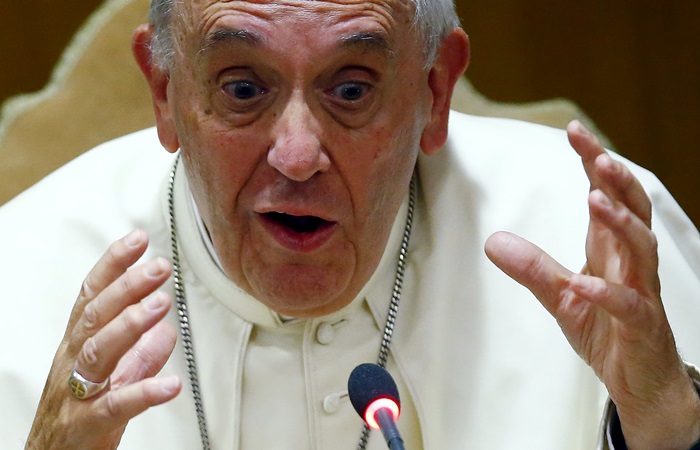Millions of Christians face extinction... and their fate lies in our hands
Hundreds of thousands of Christians are at risk of extinction. Millions face the prospect of being forced from their homes. The powerless and the innocent are likely to be the first to suffer and there is growing fear the poorest will be left behind.
But this is not the refugee crisis. This is not Syria. This is not North Korea.
This is the reality of climate change according to many Anglican leaders. Archbishop Dr Winston Halapua, the Tongan-born bishop of Polynesia in the Pacific warned last week that the hundreds of thousands of Christians in his pastoral care will be the first to go.

"The point I make is that, yes, we [here in the Pacific] are the first ones to go. But the others who think they will be OK – they're kidding themselves," said Dr Halapua. "They will not be OK. Because we love the world and because we love you, we are saying: alter your way of life."
"The innocent go first, the powerless go first. And the voice from the powerless says: 'I care for all,'" said Dr Halpua.
World leaders will gather in Paris today for the start of a two-week conference to try and reach a global deal on climate change. Known as COP21, the 21st session of the Conference of the Parties sees more than 190 nations gather to discuss an agreement aimed at reducing greenhouse gas emissions and avoid the threat of dangerous warming in global temperatures.
The response from the church has been mixed, with some dismissing the conference as a stunt and climate change as an irrelevance.
However for Halapua's flock and for millions of others the issue is real and frightening. But there is a real fear they will be "left behind" as many of these Christians are in the poorest nations on earth.
Most of the discussions in Paris will focus on hammering out a deal to introduce global measures that would limit global warming to 2 degrees centigrade. The national plans that have been submitted, if implemented, would see a rise of 3 degrees, according to assessments.
But for Halapua and the 48 members of the least developed counties (LDC) group, an agreement of anything less than 1.5 degrees would be catastrophic.
"For the LDCs, economic development, regional food security, ecosystems, and the very survival of their populations and livelihoods are at risk if talks aim only for a 2C world," said Giza Gaspar Martins from Angola, home to at least seven million Christians.
"The heads of state will be in Paris to set the tone for the negotiations. We renew our call for an ambitious, robust and binding climate deal that does not leave behind the most vulnerable among us."
For millions of Angolans, the prospect in a rise in sea level or more extreme and unpredictable weather patterns is not an inconvenience but a threat to life.
So for the world's poorest Christians in the world's poorest nations, the rush for a compromised deal over the next two weeks could be fatal.
The bishop of Salisbury was right when he said "the care of the Earth is central to our Christian life and not a nice addition for some people who are keen on it.
"This is one of the key things about being a Christian today," he said.
Let's hope that the French foreign minister was right when he promised COP21 would be a turning point. For the sake of our brothers and sisters around the world plus the millions of other vulnerable and poverty stricken people, it must be on the Christian conscience.











